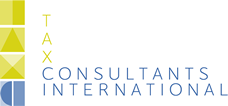Corporate Tax Services Global Mobility Services Corporate compliance Corporate Structuring International labor and cross border assignments Tax compliance
The conditions for a permanent establishment or representative
In this Chapter, the following topics will be discussed:
Dutch income tax liability for non-resident entrepreneurs
The Netherlands can only tax non-resident taxpayers for the income from an enterprise conducted in the Netherlands, if and to the extent these individuals have or can be deemed to have a permanent establishment or a permanent representative in the Netherlands.
The definition of the term permanent establishment in the Netherlands
The Dutch Income Tax Act 2001 defines the term permanent establishment as a fixed place of business of an enterprise, through which the business activities of that enterprise are wholly or partly carried on. A fixed place would typically be an office, factory or other physical presence, which is at the disposal of the taxpayer. The term 'fixed' is somewhat misleading, as under certain conditions it can also include a temporary presence, for instance with a circus tent or a vessel.
A building site or construction or installation work is only a permanent establishment if the duration exceeds 12 months. If there are various periods of 30 days, these periods have to be added up to determine whether the 12 months requirement is met, this anti-abuse provision is to prevent fragmentation. There are also cases determined in which in any case a permanent establishment does not exist.
The following activities are deemed to constitute income from a Dutch permanent establishment:
- qualifying activities in the Netherlands of an artist, musician or sportsman/woman residing in a non-treaty country;
- real estate in the Netherlands, including rights related to the exploration or exploitation of Dutch natural resources, including the generation of energy from water, float and wind, or rights vested on such assets, if they belong to the equity of an enterprise;
- activities on the Dutch North Sea (in Dutch: 'Noordzeewinningsgebied') for a period of at least 30 days.
Activities on the North Sea include activities on the continental waters as well outside the Dutch continental waters to the extent the Netherlands is allowed by international law to exercise (taxation) rights over these waters.
The term permanent establishment does not include the transport of goods or persons over water or by air between places outside the Netherlands and places in the Netherlands, unless the management of the enterprise is located in the Netherlands.
Most tax treaties and the OECD Model Income Tax Convention do also contain a definition of the term permanent establishment, which is comparable to the Dutch used definition (however not exactly the same). This definition is largely comparable with the Dutch definition but not exactly the same.
The definition given by tax treaties is also relevant as it can limit or even fully override the Dutch tax liability. If according to an applicable tax treaty between the Netherlands and the country where the individual is residing, the individual is not deemed to have a permanent establishment in the Netherlands then the Netherlands must follow this definition even if there is a permanent establishment on the basis of the Dutch definition.
It is possible to apply for an advance tax ruling in which the Dutch tax authorities confirm that on the basis of facts presented there either is or is no taxable permanent establishment for Dutch income tax purposes.
The definition of term permanent representative in the Netherlands
A person (other than an agent) who is acting on behalf of an enterprise and has, and habitually exercises, the authority to conclude contracts in the name of the enterprise constitutes a permanent establishment by means of a permanent representative.
It is possible to apply for an advance tax ruling in which the Dutch tax authorities certify that on the basis of facts presented there either is or is no taxable permanent representative for Dutch income tax purposes.
What we can do for you:
We are professional tax lawyers and we can advise you on your personal tax position and handle the preparation and filing of your annual Dutch personal income tax return and other tax compliance matters on your behalf.
We have very competitive rates for individuals and we can prepare and file your personal income tax return (and take care of other personal income tax compliance) on the basis of fixed prices which are agreed upon with you in advance.
The price for a specific tax return is dependent on your personal circumstances and the service which you wish to receive from us.
Please feel free to use our ONLINE FEE CALCULATOR for determining the fixed fee which you would have to pay us for the preparation of your personal income tax return.


.png)



